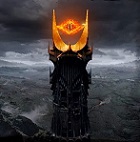Tarhunnas
Posts: 3152
Joined: 1/27/2011
From: Hex X37, Y15
Status: offline

|
quote:
ORIGINAL: Pawlock
Not sure you picked very good examples at all, lets see both cases outnumbered at least 2 -1 in inf, 4 -1 arty and 4-1 afv's in 1 and also air support in 1. Also the attacker has taken double your casualties.
I can also dig up results showing zero , big fat zero german casualties v 1-2000 soviets.
Cant see a problem here.
Look at the combat values. The 1-1 is there supposedly to offset the Soviets taking greater casualties, and they do, but those same losses should also reduce their combat value. In the first example, German CV goes from 138 to 64, Soviet CV goes from 135 to 92, almost similar change. The Soviets still win the battle because of the 1-1 rule, thus inflicting a lot of retreat casualties, probably the majority of the German casualties here. The Socviets don,t take twice the German casualties, they take 1.5 times the German casualties, and that is a rate the Germans can't sustain. Admittedly, the Soviets have a massive air superiority here that is probably affecting things, but the 1-1 is the crucial thing, and one might ask if the 1-1 is there to enhance the effect of the Soviet air force?
In the second example, German CV goes from 100 to 106, Soviet from 134 to 133. 1-1 kicks in and the Soviets win. In this case, Soviet losses are twice the Germans, but even losses of 2-1 is advantageous for the Soviets in the long run, especially as losses like these will grind down the German mobile units.
The effect is that from 1942 onwards, the Germans cannot risk using their mobile units in the role they were used, in penetrations and cutting off of enemy forces, not unless they have a massively superiority and can create at least a two-hex wide line of encirclement. This will have the effect of the game tending towards a grinding slugfest.
I have myself as the Soviets ground down German attempts at penetrations in 1942 by counting on the 1-1 to kick in and it is fairly easy.
_____________________________
|
 Printable Version
Printable Version




















 New Messages
New Messages No New Messages
No New Messages Hot Topic w/ New Messages
Hot Topic w/ New Messages Hot Topic w/o New Messages
Hot Topic w/o New Messages Locked w/ New Messages
Locked w/ New Messages Locked w/o New Messages
Locked w/o New Messages Post New Thread
Post New Thread